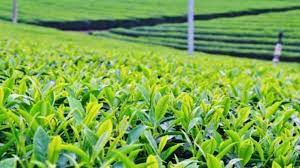NAIROBI, Kenya Apr 5 – Limuru Tea has posted a 79 percent increase in losses in the year ended December, 31 2021 to post Sh14.2 million pre-tax losses compared to Sh7.9 million losses incurred in 2020.
Management attributes the decline to low production volumes on the back of lower rainfall that went down by 40 percent as well as high inflationary pressures.
The turnover reduced by 13 percent to Sh84 million in 2021 from Sh97 million in 2020 driven by the 12 percent reduction in made tea volume and 1 percent drop in the net realized price
In 2021 the Company produced 3,207,330 Kilograms of green leaf which in turn was
manufactured into 743,453 kilograms of black tea which is lower compared to 3,882,430 kilograms of green leaf, produced in 202O manufactured into 844,103 kilograms of black tea.
The Directors do not recommend payment of dividend for the year ended 31 December 2021.
“Whereas post COVID-19 pandemic adverse impacts, market instability and general cost inflation remains a concern, the board and management have taken the necessary precautions to safeguard our staff and the interests of the business in 2022 and beyond,” the company said in a statement.
Cost management remains a key focus area for the company.
“We continue to see yield improvement from the investment made in prior years. The management will continue with strategic initiatives to ensure any risks are mitigated in its continued focus to grow the business,” Management added.
Limuru Tea PLC owns 275 hectares of tea plantations situated four kilometres to the east of Limuru Town.
The Company is an outgrower to Unilever Tea Kenya Limited (UTKL), the largest private sector tea company in Kenya.
UTKL acts as the Limuru Tea Company’s managing agent in the growing, manufacturing, sales and marketing of its tea. The Limuru Tea estate green leaf is manufactured in the nearby UTKL’s Mabroukie factory from where it is sold mainly for export.
Unilever Kenya owns a 52 percent stake in the Nairobi listed Limuru Tea Plc.
Kenya’s tea has continued to perform dismally in the international market with the earnings of the commodity dropping by 9.1 per cent in the third quarter of 2021 compared to a similar period in 2020, Kenya Nation Bureau of Statistics (KNBS) data shows.
According to the Q3 2021 Balance of Payments report prepared by KNBS, earnings from the export of tea deteriorated from Sh30.5 billion in the third quarter of 2020 to Sh27.7 billion in the review period.
“The decline was largely attributable to the decline in the export quantities that fell from 138.6 thousand metric tonnes to 124.5 thousand metric tonnes,” said KNBS.
The declining value of one of Kenya’s leading exports was so alarming that the Ministry of Agriculture had to intervene and set a minimum selling price to save farmers who were incurring losses as the price was lower than the cost of production.
The minimum reserve price of $2 was introduced by the Ministry of Agriculture in August 2021 after the cost of the commodity hit a decade low of Sh186.
However, the decline in tea did not affect domestic as they went up by 10 percent in the period under review, valued at Sh160.2 billion from the corresponding quarter of 2020 where they were valued at Sh144.8billion.
The growth was attributed to increase in domestic exports of horticulture, articles of apparel and clothing accessories, edible products and preparations, and titanium ores and concentrates.
Under the Broad Economic Category, significant increases were exhibited in the domestic exports of non-food industrial supplies and consumer goods which rose by 20.5 percent and 16.3 percent, respectively.
On the other hand, revenue from domestic exports of food and beverage commodities continued to account for the largest share of the total export earnings, valued at KSh 65.1 billion in the quarter under review.


















